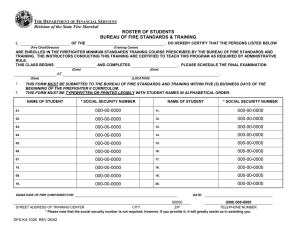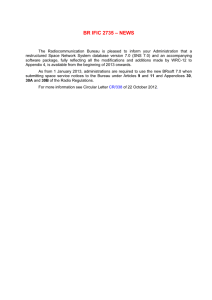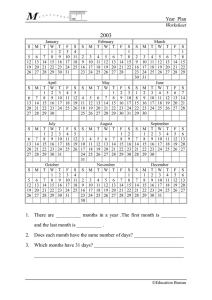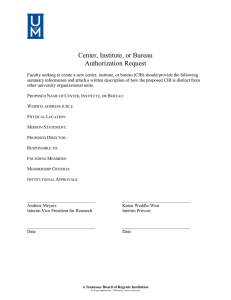Bill Summary
advertisement
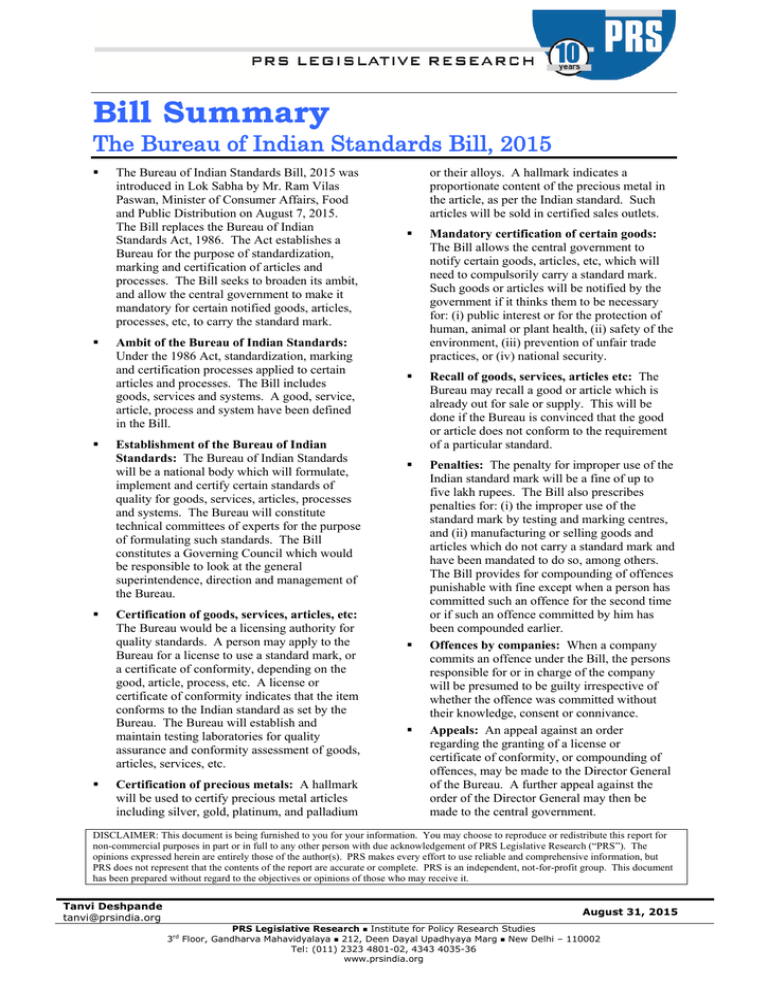
Bill Summary The Bureau of Indian Standards Bill, 2015 The Bureau of Indian Standards Bill, 2015 was introduced in Lok Sabha by Mr. Ram Vilas Paswan, Minister of Consumer Affairs, Food and Public Distribution on August 7, 2015. The Bill replaces the Bureau of Indian Standards Act, 1986. The Act establishes a Bureau for the purpose of standardization, marking and certification of articles and processes. The Bill seeks to broaden its ambit, and allow the central government to make it mandatory for certain notified goods, articles, processes, etc, to carry the standard mark. Ambit of the Bureau of Indian Standards: Under the 1986 Act, standardization, marking and certification processes applied to certain articles and processes. The Bill includes goods, services and systems. A good, service, article, process and system have been defined in the Bill. Establishment of the Bureau of Indian Standards: The Bureau of Indian Standards will be a national body which will formulate, implement and certify certain standards of quality for goods, services, articles, processes and systems. The Bureau will constitute technical committees of experts for the purpose of formulating such standards. The Bill constitutes a Governing Council which would be responsible to look at the general superintendence, direction and management of the Bureau. Certification of goods, services, articles, etc: The Bureau would be a licensing authority for quality standards. A person may apply to the Bureau for a license to use a standard mark, or a certificate of conformity, depending on the good, article, process, etc. A license or certificate of conformity indicates that the item conforms to the Indian standard as set by the Bureau. The Bureau will establish and maintain testing laboratories for quality assurance and conformity assessment of goods, articles, services, etc. Certification of precious metals: A hallmark will be used to certify precious metal articles including silver, gold, platinum, and palladium or their alloys. A hallmark indicates a proportionate content of the precious metal in the article, as per the Indian standard. Such articles will be sold in certified sales outlets. Mandatory certification of certain goods: The Bill allows the central government to notify certain goods, articles, etc, which will need to compulsorily carry a standard mark. Such goods or articles will be notified by the government if it thinks them to be necessary for: (i) public interest or for the protection of human, animal or plant health, (ii) safety of the environment, (iii) prevention of unfair trade practices, or (iv) national security. Recall of goods, services, articles etc: The Bureau may recall a good or article which is already out for sale or supply. This will be done if the Bureau is convinced that the good or article does not conform to the requirement of a particular standard. Penalties: The penalty for improper use of the Indian standard mark will be a fine of up to five lakh rupees. The Bill also prescribes penalties for: (i) the improper use of the standard mark by testing and marking centres, and (ii) manufacturing or selling goods and articles which do not carry a standard mark and have been mandated to do so, among others. The Bill provides for compounding of offences punishable with fine except when a person has committed such an offence for the second time or if such an offence committed by him has been compounded earlier. Offences by companies: When a company commits an offence under the Bill, the persons responsible for or in charge of the company will be presumed to be guilty irrespective of whether the offence was committed without their knowledge, consent or connivance. Appeals: An appeal against an order regarding the granting of a license or certificate of conformity, or compounding of offences, may be made to the Director General of the Bureau. A further appeal against the order of the Director General may then be made to the central government. DISCLAIMER: This document is being furnished to you for your information. You may choose to reproduce or redistribute this report for non-commercial purposes in part or in full to any other person with due acknowledgement of PRS Legislative Research (“PRS”). The opinions expressed herein are entirely those of the author(s). PRS makes every effort to use reliable and comprehensive information, but PRS does not represent that the contents of the report are accurate or complete. PRS is an independent, not-for-profit group. This document has been prepared without regard to the objectives or opinions of those who may receive it. Tanvi Deshpande tanvi@prsindia.org August 31, 2015 PRS Legislative Research Institute for Policy Research Studies 3rd Floor, Gandharva Mahavidyalaya 212, Deen Dayal Upadhyaya Marg New Delhi – 110002 Tel: (011) 2323 4801-02, 4343 4035-36 www.prsindia.org
